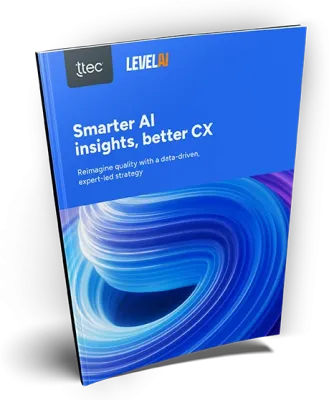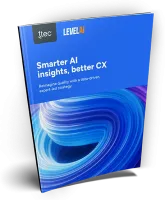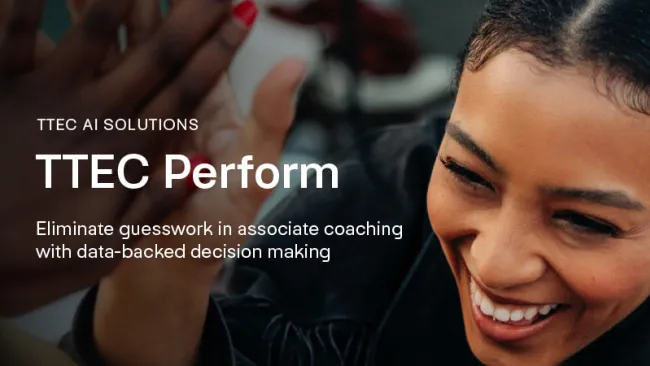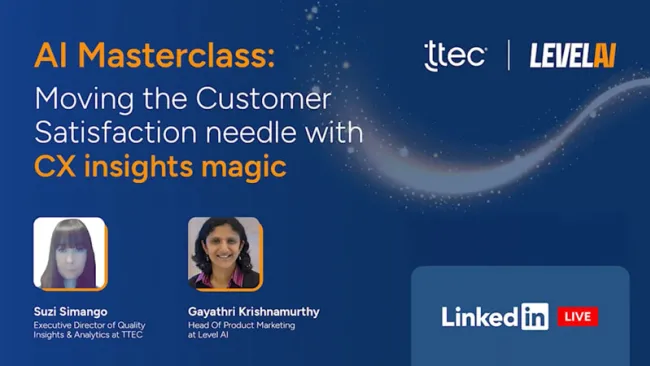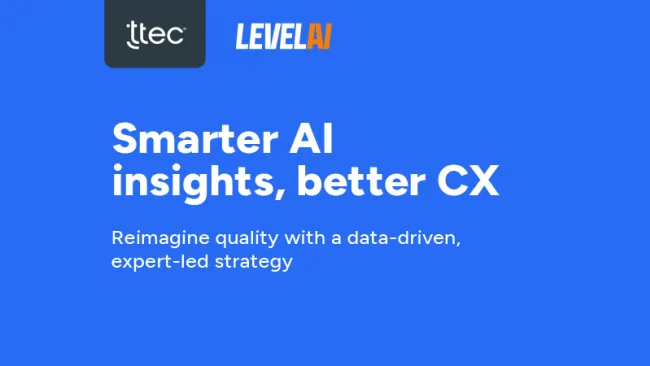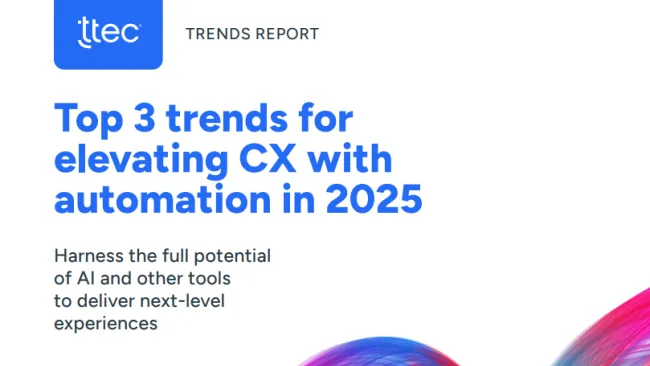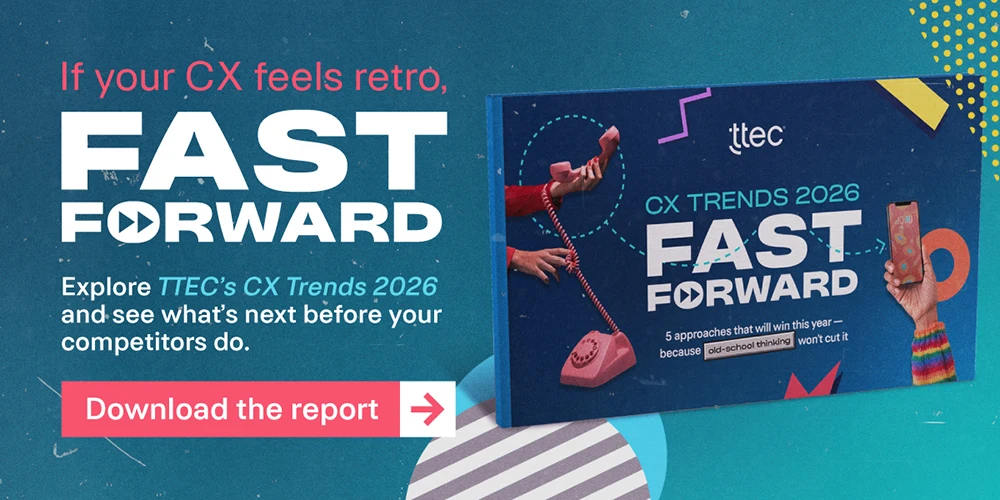If an esteemed colleague told you, “Here are some proven learning methodologies that boost contact center CSAT,” would you listen? If she whispered that your legacy training protocols are making you a dinosaur and undermine the customer experience, would you act?
It’s not me saying it and it’s not a famous inspirational speaker. It’s learners and our employees who’ve been telling us for years that they are uninspired by the practices many of us still cling to—the stale, mass-produced educational methods that mumble, “Bueller…? Bueller…?”
We humans are in flux. And we expect more.
Individualized, adaptive learning
Analog is out. How we connect and engage digitally—the channels we favor, the technology we’re comfortable using—is changing rapidly. New hires are hungry for the knowledge, digital tools, and support that set them up for success. But they expect more than their predecessors did: Learners demand choice and an active role in the process. They want training to be dynamic, personalized, flexible, and above all, delivered with tools they use for their own learning. The instructor who reads slides aloud and distributes PDFs will send quality talent running for the exits.
We learn differently now. When’s the last time you pored over a printed Owner’s Manual that came with your lawnmower? Instead, we’re YouTubing and TikTokking it because digital channels are an extension of our everyday lives—just-in-time, video-based, and immediately accessible. Add to that AI-enhanced simulation tools that provide immediate opportunity to practice and receive individualized feedback, and you have a recipe for new knowledge and skills acquisition that surpasses the traditional classroom.
What do we mean when we say adaptive? At its core, it’s customizing learning to the individual based on the knowledge and skills they already possess and the gaps that need to be filled. This is not a new concept. Anyone who has taken workplace compliance training with the option to “test out” (skip training in areas where they’ve demonstrated proficiency) has experienced adaptive learning, albeit in a basic form.
Adaptive learning extends beyond the content itself. For example, when it comes to testing, time of day can matter. Research shows that some learners test better in the morning, while others test better in the afternoon. Testing at non-optimal times can result in false scores. Giving learners choice about when they can take a break is another facet to adaptive and individualized learning that contributes to better learning outcomes.
There is another, very human benefit to adaptive learning methods. When we give learners choice, we send the message that we value who they are as individuals, that they matter. It also drives a sense of belonging, that they feel a part of the community. Add to that opportunities to grow, and they’ll pay you back not only with better retention rates but by extending ever-elusive discretionary effort.
Future of learning? Already here
AI is one of the most significant disruptors of our age. With new tools and technology, our ability to supercharge learning in new ways has taken a massive leap forward. Progressive training organizations have been experimenting with adaptive, individualized learning methods for decades, but the lack of enabling technology was limiting. We can now harness the best of AI to create learning experiences at scale that far surpass standard practice and enable people to achieve their full potential.
What does a compelling, AI learning experience look like? One example comes from our AI-enhanced RealSkill training bots that role-play with learners by simulating real-world customer interactions. Learners practice their skills by engaging with the bot that provides personalized, real-time feedback and coaching to improve. RealSkill has proven to decrease attrition, improve first call resolution, and boost speed to proficiency. For one of our healthcare clients, RealSkill improved CSAT for members 12%.
Another platform, Let Me Know, is a generative AI tool that delivers the answers associates need directly to their desktops, at the moment of need while a customer conversation unfolds. Associates rely less upon searching in large knowledgebases to locate the answers they need because the tool anticipates what should happen next and retrieves the information for them. In one deployment, tech support associates chose to use the tool on nearly every call. Let Me Know improved average handle time and reduced associate stress, driving enhanced experiences for both customers and the associates themselves.
The job (and the employee) has changed, too
There is no denying the work of contact center associates is changing too. AI, bots, automation, and self-service are making it easier for consumers to complete simple tasks on their own, like rescheduling a delivery. That means more calls routed to humans will be emotionally charged conversations demanding skills, patience, and empathy to resolve successfully. The extra effort involved can lead to fatigue, burnout, anxiety, and high stress.
Learning organizations need to recognize this shift and provide learners training to develop what I call human experience (HX) skills.
With AI supporting customer care by retrieving knowledge and completing certain tasks, associates can shift their focus to creating human experiences that drive positive emotion and customer behavior —loyalty, repurchase, trust, and retention. What’s more, emotions are the most important driver of loyalty, which is key to both employee and customer relationships. While customer needs may be changing, the psychology that drives them is largely the same.
Augmenting the traditional contact center curriculum of product, process, and policy knowledge with human experience skills that help them create great human connections is a start; ultimately, HXE skills will become the core curriculum. The combination of AI and human skills will herald a sea change in the quality of the customer experiences we can provide.
With generative AI, we can unleash human potential by enabling associates to focus on what humans want — emotional connection.

